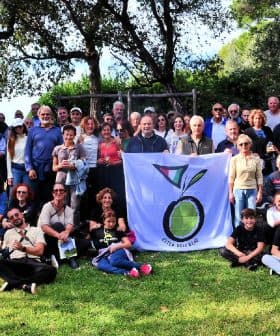Patients Respond to Nutrition Guidance Via Telehealth, Study Shows

A study published in Rheumatoid International found that patients with rheumatoid arthritis who consumed extra virgin olive oil under the guidance of a trained dietician through telehealth methods showed improved dietary quality and adherence. The researchers concluded that telehealth interventions, such as online sessions with registered dieticians, can be effective in supporting face-to-face care for managing rheumatoid arthritis, with potential benefits for both physical and psychological well-being.
A 2023 qualitative study published in Rheumatoid International explored the experience of patients with rheumatoid arthritis who were advised to consume 60 to 80 milliliters of extra virgin olive oil.
Audrey Tierney, an associate professor in human nutrition and dietetics at the University of Limerick’s School of Allied Health, confirmed that dietary intervention delivered through telehealth methods could positively complement face-to-face care in sustaining dietary and lifestyle changes.
“This study showed that, when provided with support, guidance and information from a trained dietician through online platforms, patients with rheumatoid arthritis ate a better quality diet and increased consumption of foods not common to their country, such as extra virgin olive oil,” she told Olive Oil Times.
See Also:Health News“The study showed that a dietary intervention delivered through online platforms can be effective, convenient, and empowering for people living with rheumatoid arthritis,” Tierney added. “These online interventions offer accessibility to members of the multidisciplinary team and provide the opportunity for people to take an active role in managing their disease.”
Previous studies confirm a positive benefit for patients with rheumatoid arthritis by following a Mediterranean diet. The researchers’ aim of this study was to explore the experience and perception of participants in making lifestyle and dietary changes via telesessions.
The study explored several overarching themes, such as participant motivation for joining the program, the program’s benefits, dietary adherence and the pros and cons of telehealth.
The participants identified positively with telehealth interventions provided by a registered dietician. The researchers concluded that teleseminars may be a viable way to support face-to-face care with patients with rheumatoid arthritis.
“Additional efforts were required to establish rapport and build trust for a supportive and empathetic environment,” Tala Raad, a Ph.D. candidate at the University of Limerick focused on Mediterranean dietary patterns in adults living with rheumatoid arthritis in Ireland, told Olive Oil Times.
“As some participants had limited technological literacy and access to good internet connectivity, these created some barriers to engagement and participation,” she added.
Tierney said one of the significant challenges associated with telehealth is ensuring patients’ compliance with dietary recommendations.
“Therefore, we had to develop reliable methods to monitor the participants’ intakes and track their progress effectively,” she said.
According to the researchers, this is the first study that demonstrated a Mediterranean diet was accepted in a non-Mediterranean, Irish population.
The data confirmed that a dietary intervention program delivered by a registered dietician through telehealth is an acceptable complement to face-to-face care for managing rheumatoid arthritis.
Researchers concluded that motivation and perceived benefits of dietary changes are important for participation. These perceptions can produce both physical and psychological benefits.
The study also confirmed that adults with rheumatoid arthritis are often interested in evidence-based programs and programs with expert input.
A growing body of evidence supports dietary and lifestyle changes in improving the lives of people with rheumatoid arthritis. The Mediterranean diet has generated interest, in particular, due to its cardiovascular and anti-inflammatory benefits.
According to the Arthritis Foundation, dietary interventions offer a positive direction for patients with arthritis. A Mediterranean diet relies on extra virgin olive oil, which can lower levels of chemicals that cause inflammation.
“A meal plan like the Mediterranean diet can lower inflammation and control some rheumatoid arthritis symptoms,” wrote Debra Fulghum Bruce, an editorial consultant at WebMD. “While food is not promising to cure the disease, this method of eating can keep inflammation in check.”
The researchers envision that this study may facilitate research translation to practice and contribute toward a more holistic approach to rheumatoid arthritis management. Future studies may also explore how to assist patients in overcoming barriers and enhancing enablers for adopting healthier eating patterns.
“This study shows that by using online video sessions, dieticians can reach people and help them make healthier choices and good decisions about their diet,” Tierney and Raad told Olive Oil Times. “We were able to showcase the importance of diets such as the Mediterranean diet and foods like using extra virgin olive oil, which can lead to better health and well-being for everyone.”
Potential directions for future studies include comparing and examining participants’ experiences on various online platforms, including video calls, web-based modules, virtual support groups, or mobile applications for delivering lifestyle interventions.
“Future studies should also consider identifying barriers and enablers to engagement in diet interventions, investigating experiences of individuals from diverse and socio-demographic characteristics, and assessing potential disparities on access and engagement,” Raad said.
She added that this would help identify strategies to promote equity in telehealth and improve access to online interventions for everyone.
“Future research should also explore the experiences and challenges encountered by healthcare professionals,” Raad concluded. “Based on findings of participants and providers, guidelines for designing and implementing effective online dietary interventions can be developed.”









